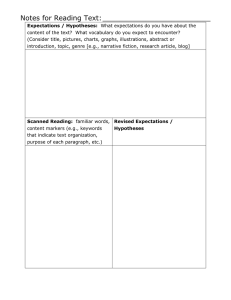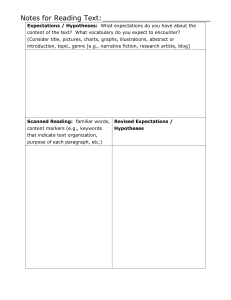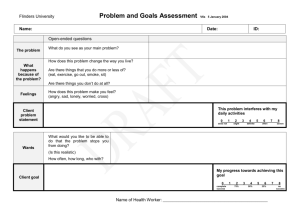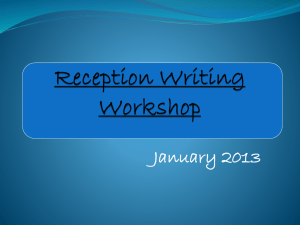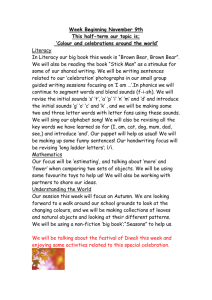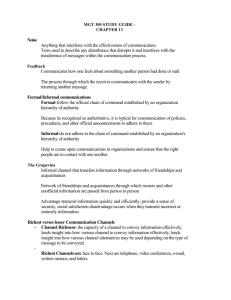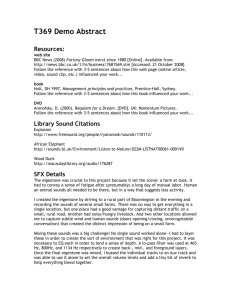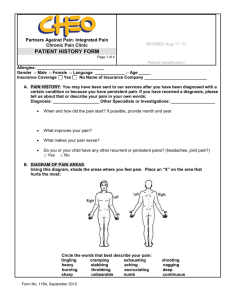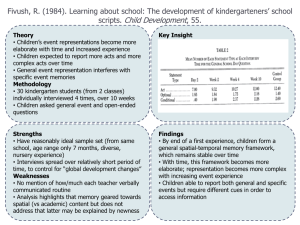Speech & Language Concern Checklist
advertisement
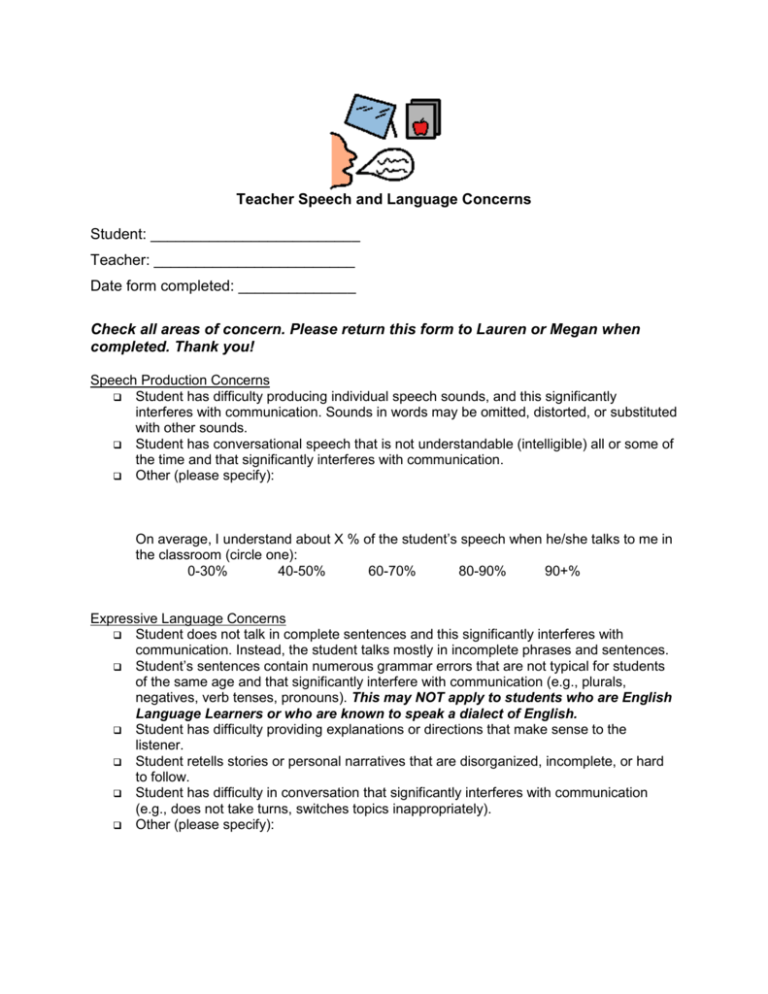
Teacher Speech and Language Concerns Student: _________________________ Teacher: ________________________ Date form completed: ______________ Check all areas of concern. Please return this form to Lauren or Megan when completed. Thank you! Speech Production Concerns Student has difficulty producing individual speech sounds, and this significantly interferes with communication. Sounds in words may be omitted, distorted, or substituted with other sounds. Student has conversational speech that is not understandable (intelligible) all or some of the time and that significantly interferes with communication. Other (please specify): On average, I understand about X % of the student’s speech when he/she talks to me in the classroom (circle one): 0-30% 40-50% 60-70% 80-90% 90+% Expressive Language Concerns Student does not talk in complete sentences and this significantly interferes with communication. Instead, the student talks mostly in incomplete phrases and sentences. Student’s sentences contain numerous grammar errors that are not typical for students of the same age and that significantly interfere with communication (e.g., plurals, negatives, verb tenses, pronouns). This may NOT apply to students who are English Language Learners or who are known to speak a dialect of English. Student has difficulty providing explanations or directions that make sense to the listener. Student retells stories or personal narratives that are disorganized, incomplete, or hard to follow. Student has difficulty in conversation that significantly interferes with communication (e.g., does not take turns, switches topics inappropriately). Other (please specify): Teacher Concerns Checklist, p. 2 Student: _________________________ Teacher: ________________________ Date form completed: ______________ Receptive Language/Comprehension Concerns Student does not appear to understand/follow an age-appropriate direction that contains multiple parts. Student does not appear to understand teacher questions presented in class that are age-appropriate. Student does not appear to understand vocabulary words used in class that are at the student’s independent/instructional reading level. Student does not request clarification when it appears the student does not understand a teacher’s verbal direction. Student does not appear to understand comprehension questions about a short story that is at the student’s independent/instructional reading level. Other (please specify): Speech Fluency Concerns Student’s speech contains disfluencies that significantly interfere with communication. Sound, syllable, or word repetitions with obvious tension in face or neck muscles Sound prolongations Blocks (no sound or airflow) Student appears frustrated or upset about his/her dysfluent speech pattern. Other (please specify): Voice Quality Concerns Student’s voice quality significantly interferes with communication Harsh or hoarse voice quality No voice Excessively nasal voice quality Other (please specify):
